Waste Management in Football Stadiums
5 December 2023, By PLAEX Technologies
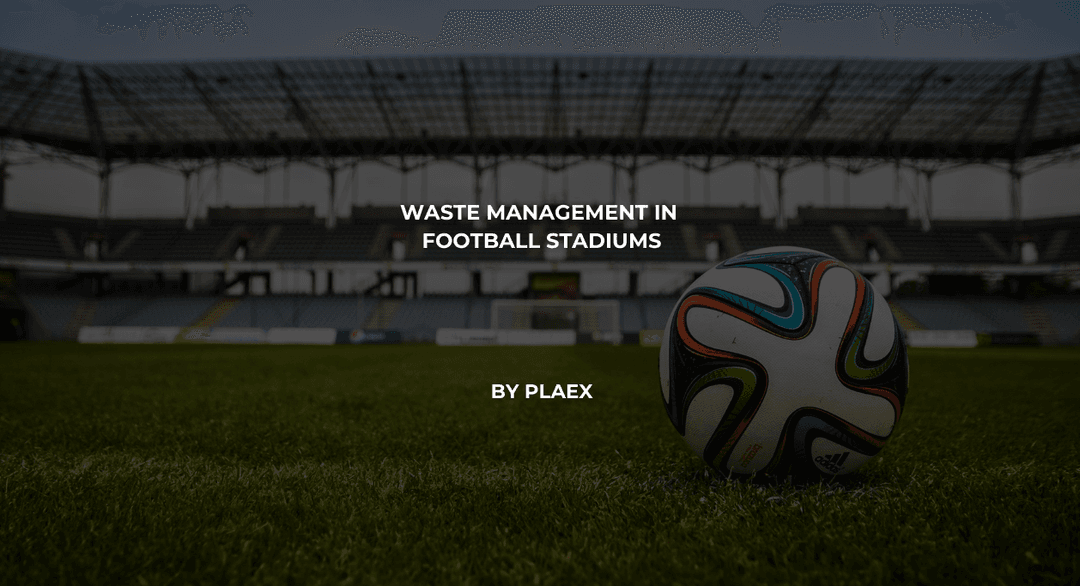
Football stadiums are iconic venues designed to host matches, events, and gatherings for enthusiasts of the sport. They attract large crowds and play a significant role in waste generation. In European football, the average attendance varies by country and league, with some of the top leagues such as the English Premier League and the German Bundesliga regularly attract over 40,000 spectators per game.
The traditional waste management systems used in sporting events, such as traditional bins and collection services, struggle to effectively handle the vast quantities and diverse types of waste generated in such a dynamic and high-traffic environment. This is due to the large number of spectators and the consumption of food, beverages, and merchandise during events. As a result, it leads to challenges in recycling, including overflowing bins, littering, and difficulty in segregating different types of waste.
With that being said, innovative waste management alternatives and solutions in these venues is vital to reduce environmental impact while maintaining cleanliness inside stadiums, most especially after big football matches such as major club derbies and other club rivalry events.
In today's article, we will disclose the intricacies of waste management practices tailored for football stadiums, exploring innovative solutions, challenges faced, and the future landscape of sustainable waste management.
How Much Waste is Generated in Football Stadiums?
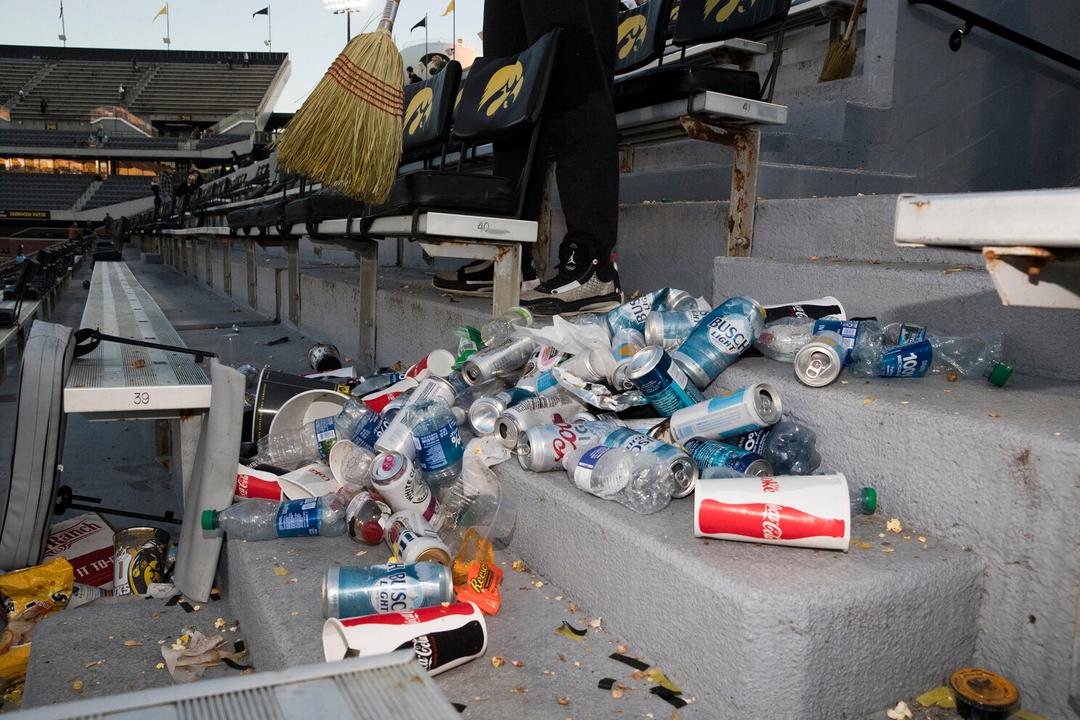
Football stadiums are known for drawing in massive crowds and hosting a range of events that collectively generate substantial amounts of waste. The diverse nature of this waste presents unique challenges for traditional waste management systems.
One challenge for traditional waste management systems is the inadequate capacity to handle the increasing volume of waste generated by large events such as football games. The consequence of inadequate waste management capacity for large events like football games includes increased environmental pollution and strain on local waste disposal infrastructure.
Now that we've understood the nature of waste management in football stadiums, let's dive into some interesting facts about football venues and the amount of mishandled trash and waste during and after sporting matches.
Did you know that Manchester United, one of the most widely supported and recognized football clubs globally and in the UK, leads the chart in terms of the number of waste accumulated per game and season?
They are the primary contributors, producing 8 tons per match and 197 tonnes over the course of the season.
The UK boasts a growing number of 92 football stadiums, each attracting large crowds, leading to a significant environmental impact due to the pollution generated by fans and spectators. Proper waste management is essential to ensure efficient operations, responsible business practices, and cost-effective handling of recyclable materials.
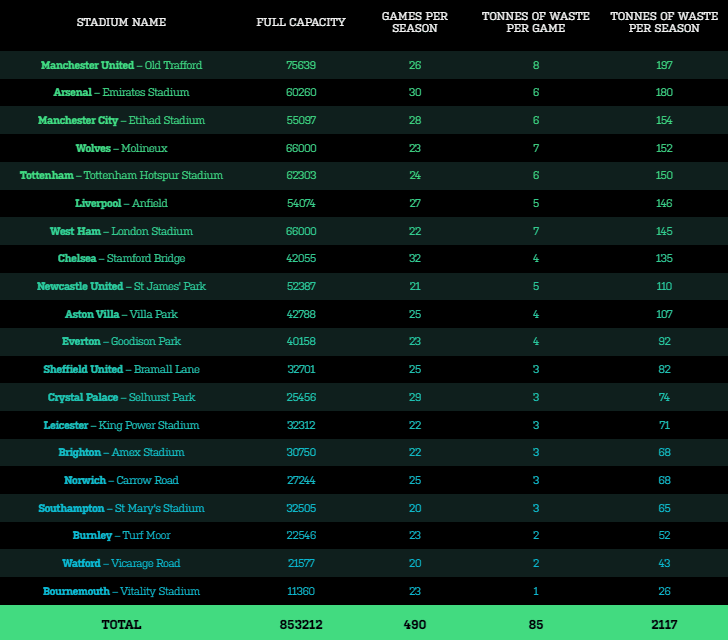
When examining the specific breakdown of waste types, it becomes evident that football stadiums produce various categories of waste, each with its own environmental implications.
During a single match or event, football stadiums in the Netherlands generate significant quantities of various types of waste. This includes paper, plastic, residual, glass, and PMD waste.
With the Premier League hosting some of the largest sports venues globally, it's understandable that 2,117 tons of waste were generated during 490 matches throughout the 2019-20 season. These figures paint a vivid picture of the sheer magnitude and variety of waste materials that necessitate comprehensive and tailored waste management solutions.
What are Waste Management Challenges in Football Stadiums?
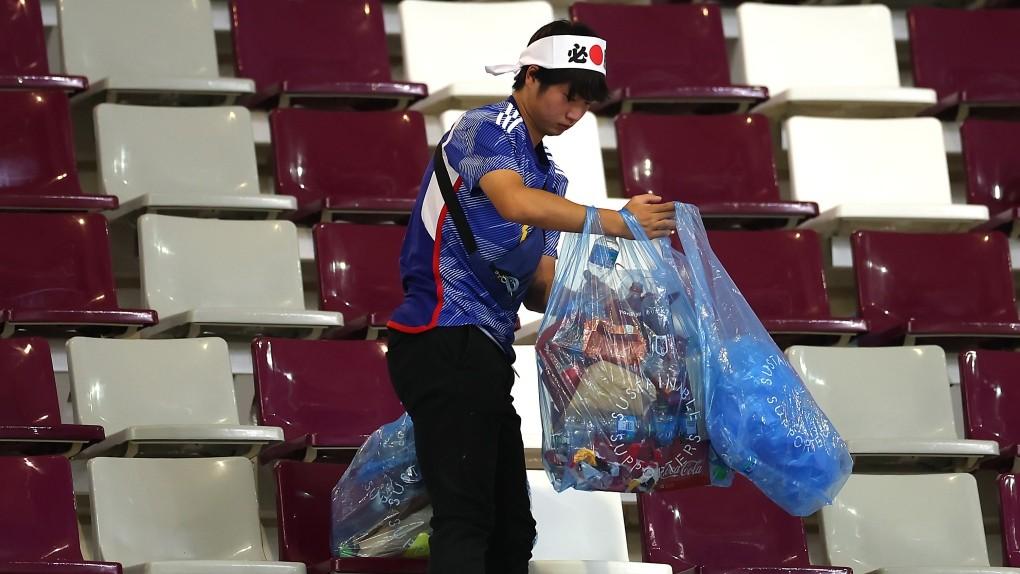
Football stadiums are a focal point for the primary environmental impacts of most football clubs, as the large number of fans attending matches leads to substantial waste generation. The diverse nature of this waste presents unique challenges for traditional waste management systems, necessitating innovative and comprehensive solutions to address the complexities inherent in this dynamic environment.
From single-use plastics to food packaging and general litter, the waste generated during football matches underscores a pressing need for sustainable waste management practices to curtail environmental impact and promote responsible disposal.
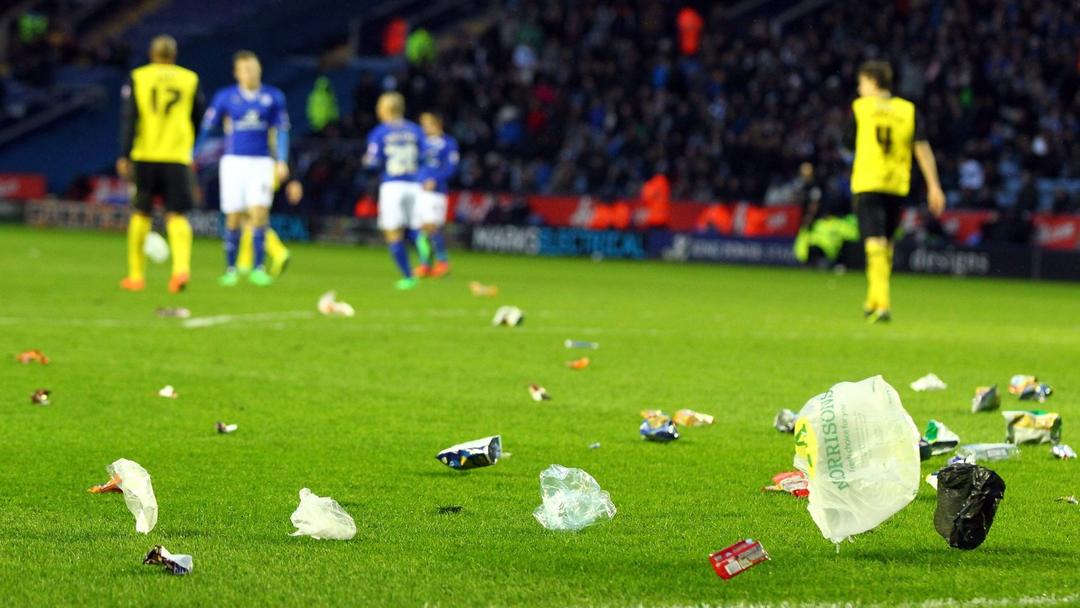
The following includes a brief overview of waste management issues faced by football stadiums:
- High volume of foot traffic and consumption leading to substantial waste generation during matches and events.
- Wide range of waste materials, including single-use plastics, food packaging, paper products, and general litter, requiring effective segregation and disposal methods.
- Difficulty in managing food waste, potentially leading to odor, pest, and hygiene issues.
- Limited space and fast-paced nature of stadium events posing challenges for waste collection and segregation.
- Environmental impact of waste generation, necessitating sustainable waste management practices to mitigate adverse effects.
- Lack of recycling infrastructure
- Public awareness and participation
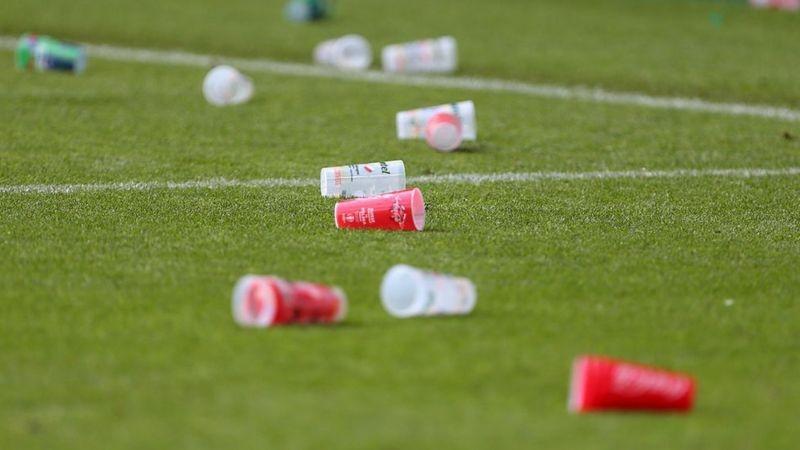
Given the issues raised above, sustainable waste management practices are essential for eliminating the environmental impact of waste generation, promoting resource efficiency, and reducing the burden on landfills and natural ecosystems.
To address these challenges, stadiums have to implement various sustainable waste management practices. Recycling initiatives, also exemplified by innovative and smart solutions like Garby, play an important role in sustainable waste management practices. This represents a commendable advancement in waste sorting technology, effectively addressing the complexities of waste segregation within dynamic environments in football stadiums.
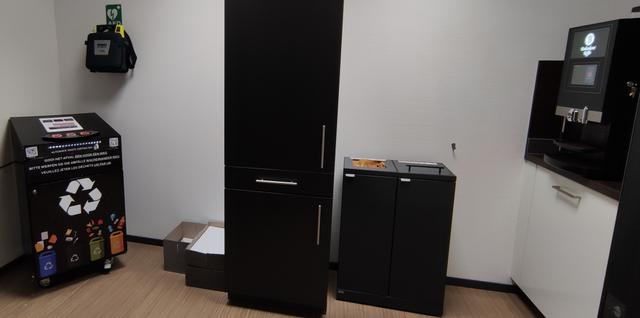
Such initiatives not only optimize waste segregation and recycling but also contribute significantly to reducing environmental impact and improving resource recovery.
In essence, Garby presents a compelling and effective approach to waste management, reflecting a commitment to environmental stewardship in football stadiums.
Contact us to find out more about our revolutionary waste management solution for your business.
Innovative Waste Management Solutions in Football Stadiums
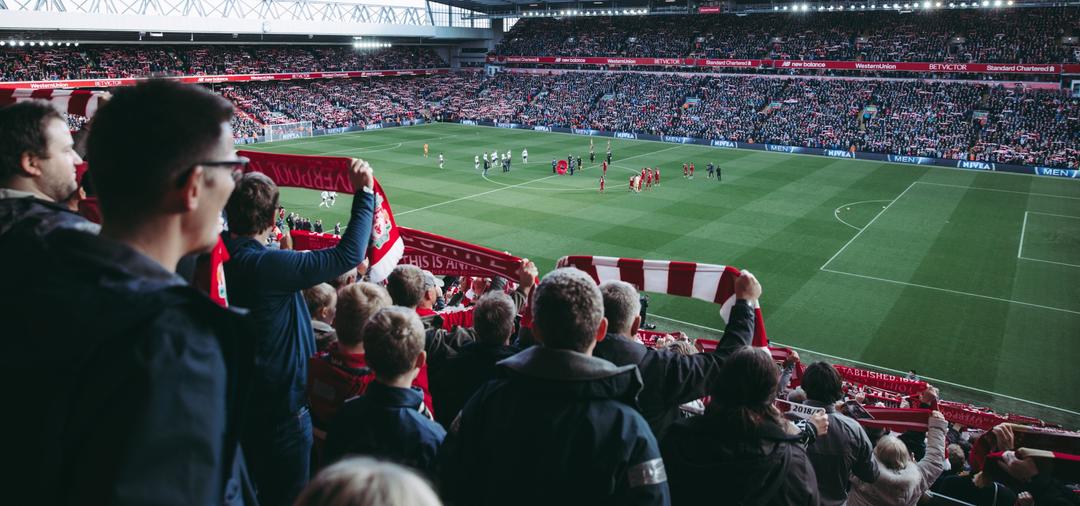
Numerous stadiums globally have embraced innovative waste management solutions. FC Utrecht and FC Twente, two renowned Dutch football clubs in the Netherlands, embarked on a journey to revolutionize their waste management strategies by incorporating Garby into their respective football stadiums.
Both FC Utrecht and FC Twente were driven by a shared commitment to sustainability and environmental responsibility. Recognizing the escalating challenges of waste management in their stadiums, they sought a cutting-edge solution that not only streamlined waste disposal but also contributed to their green initiatives.
De Grolsch Veste, the esteemed home of FC Twente, produces notably over 150,000 kg of waste every year.
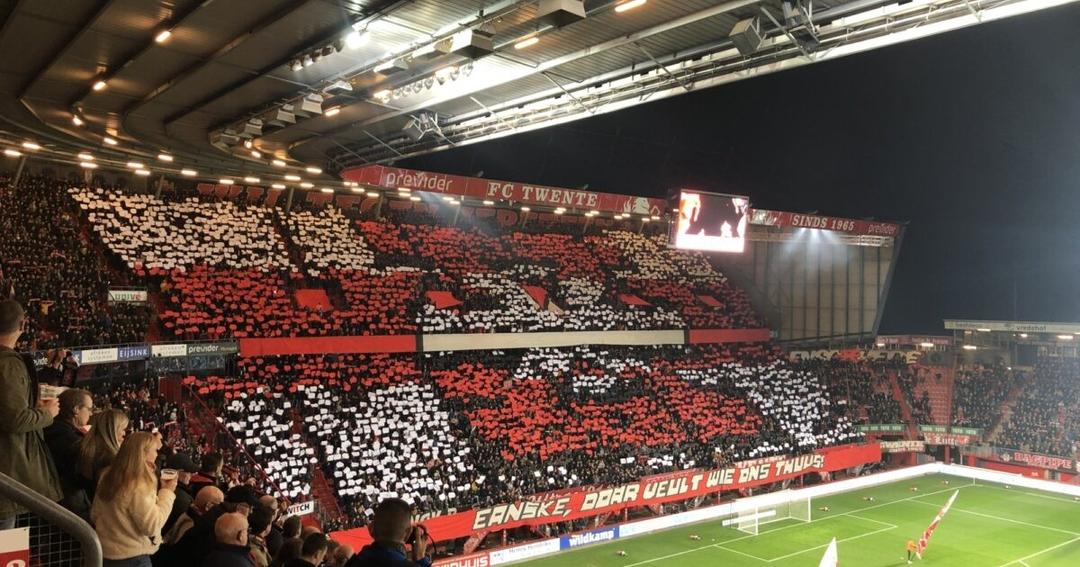
Within this total, nearly 13% is contributed by paper, indicating a significant paper waste output which may consist of discarded matchday programs, administrative paperwork, and packaging materials.
Additionally, a substantial 15.7% of glass waste is generated, likely stemming from beverage containers and other glass-based matchday consumables.
The stadium also produces over 27.4 tons of organic waste each year, encompassing food scraps and compostable materials. And residual waste? A staggering 53%.
This illustrates a considerable need for comprehensive and sustainable waste management strategies.
The waste profile above underscores the considerable environmental impact associated with the operations of a modern football stadium and the potential for targeted waste reduction initiatives to yield significant sustainability benefits.
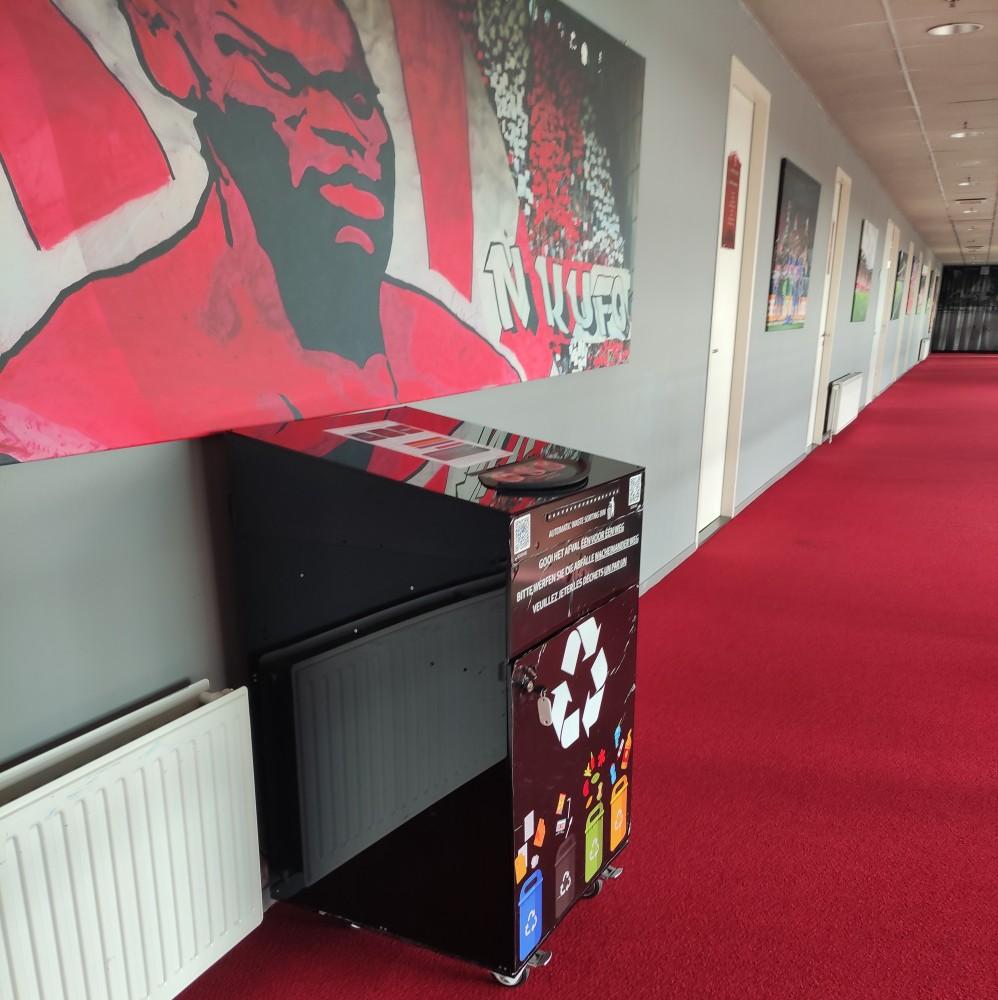
FC Utrecht effectively used Garcia's advanced sensors to promote sustainable behavior with the use of artificial intelligence on our smart waste detector. The club managed to achieve a positive and great pilot test with our smart waste technology.
Spectators in Stadion Galgenwaard had to look for trash around the venue and received points, as well as a scarf, for every kilogram of waste disposed correctly. These points were then redeemed for rewards in order to collect prizes and other awards.
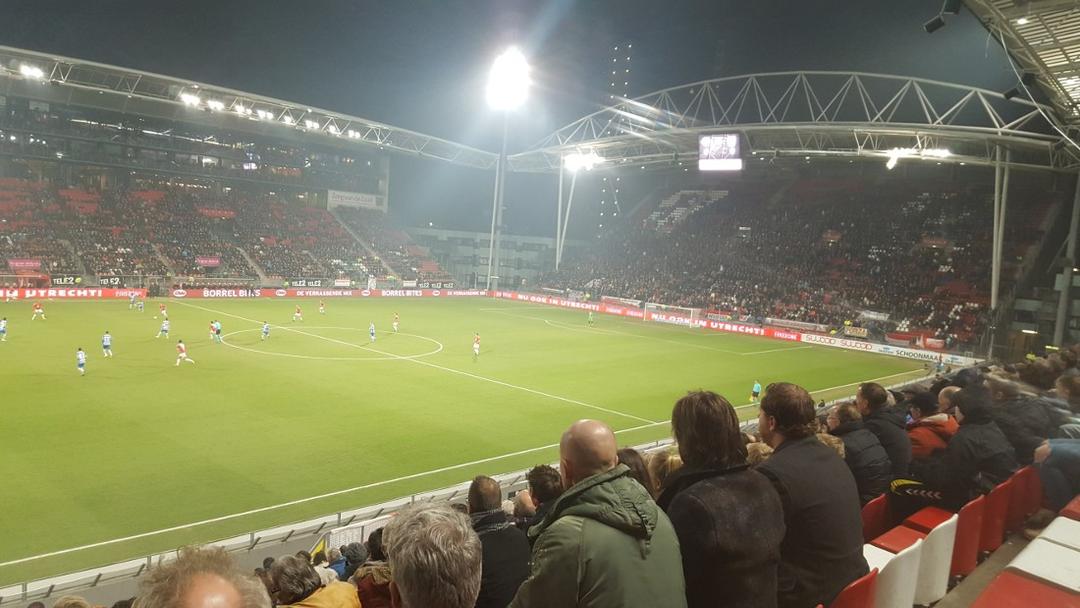
It created a win-win situation for the environment and every individual enjoying the fascinating game of football inside the stadium.
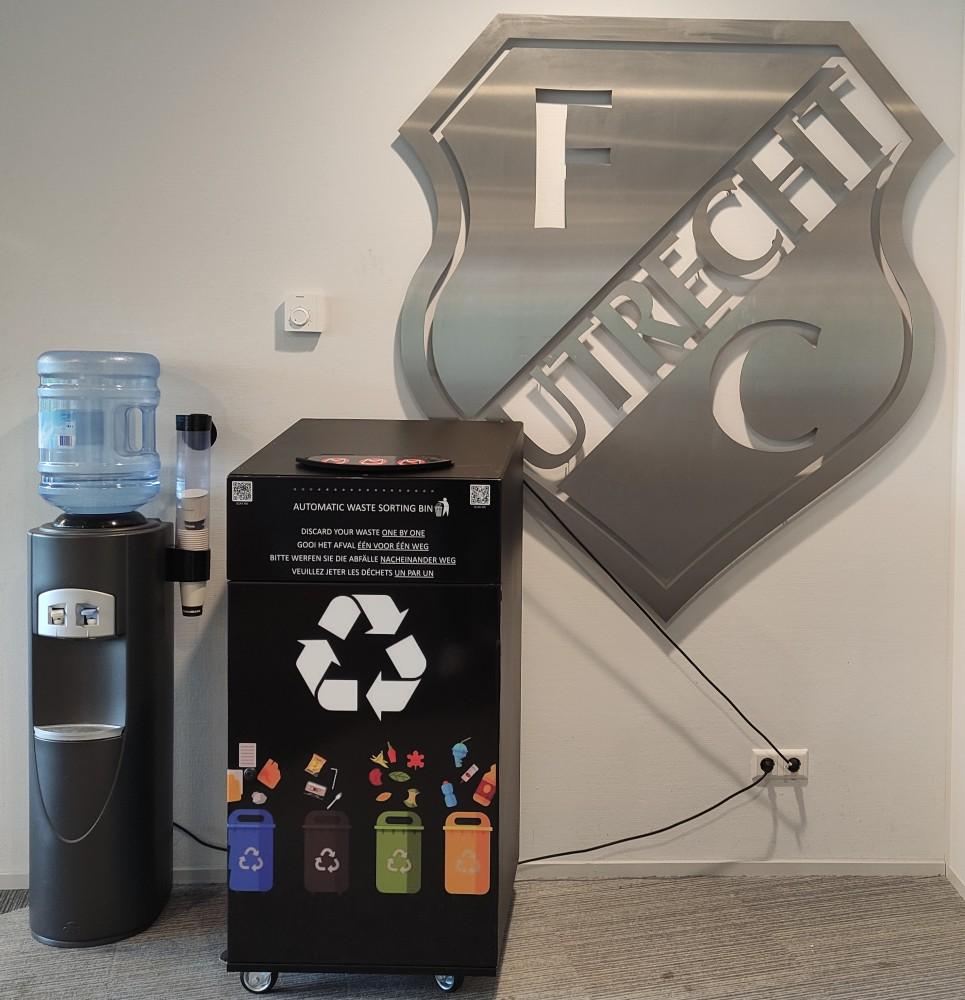
Final Thoughts
Football stadiums, such as those in the Premier League and across the Netherlands, grapple with various waste types—ranging from plastics to food packaging—which demand effective segregation and disposal methods.
These challenges underscore the necessity for tailored waste management strategies that account for the unique dynamics of stadium environments.
It is imperative for football stadiums worldwide to embrace and implement similar innovative waste management solutions.
In return, they can significantly reduce environmental impact, promote responsible waste disposal, and inspire a culture of environmental stewardship among fans and communities.
As these efforts continue to evolve, they pave the way for a more sustainable future, both within the realm of sports and beyond.
aste management in football stadiums is an evolving challenge that necessitates immediate action. Implementing sustainable practices, fostering collaborations, and embracing innovative solutions are pivotal in creating cleaner and more environmentally responsible stadiums.
FAQ (Frequently Asked Questions)
What is the significance of waste management in football stadiums?
Waste management in football stadiums is crucial for promoting environmental sustainability, reducing the carbon footprint of the sporting events, and setting an example for the fans and the wider community.
How can Garby contribute to effective waste management in football stadiums?
Garby's smart bin technology can significantly contribute to effective waste management in football stadiums. Its smart sensors can monitor fill levels and optimize waste collection, reducing unnecessary collections and conserving resources. Our AI waste bin also simplifies waste segregation with dedicated compartments for recyclables and non-recyclables, making it easy for fans and staff to participate in recycling efforts.
What are the benefits of using Garby for waste management in football stadiums?
Using Garby in football stadiums can lead to streamlined waste management processes, reduced operational costs, and a heightened environmental consciousness among fans and staff. It also reflects positively on the stadium's image as an eco-conscious and responsible venue.
How can football clubs and stadium authorities integrate Garby into their waste management strategies?
Football clubs and stadium authorities can integrate Garby into their waste management strategies by strategically placing Garby smart bins throughout the stadium, promoting awareness about the importance of responsible waste disposal, and actively involving fans in recycling initiatives during match days and events.